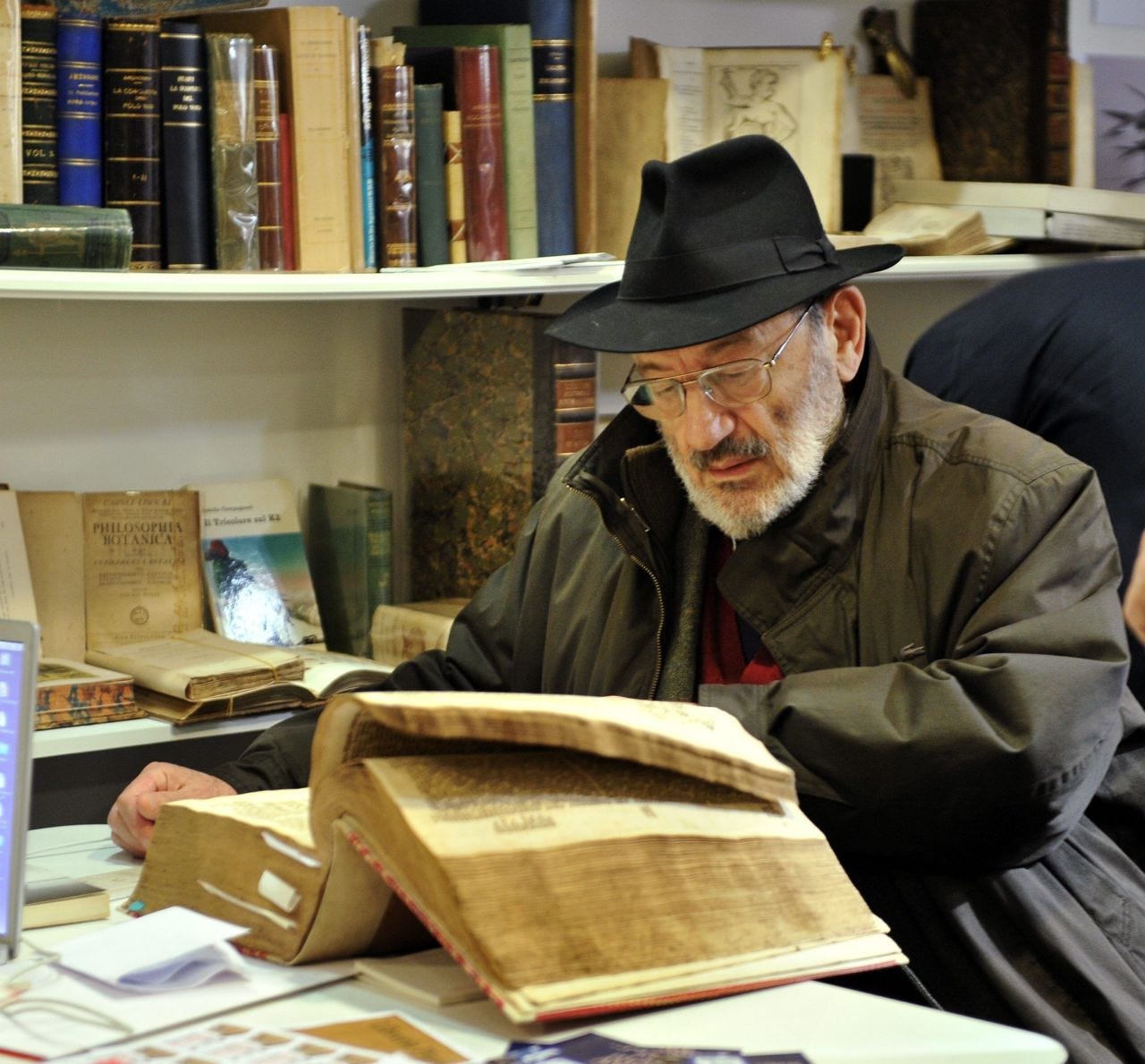The writer Umberto Eco belongs to that small class of scholars who are encyclopedic, insightful, and nondull. He is the owner of a large personal library (containing thirty thousand books), and separates visitors into two categories: those who react with “Wow! Signore professore dottore Eco, what a library you have. How many of these books have you read?” and the others—a very small minority—who get the point is that a private library is not an ego-boosting appendages but a research tool. The library should contain as much of what you do not know as your financial means … allow you to put there. You will accumulate more knowledge and more books as you grow older, and the growing number of unread books on the shelves will look at you menacingly. Indeed, the more you know, the larger the rows of unread books. Let us call this collection of unread books an antilibrary.
Nassim Nicholas Taleb, from The Black Swan
I have many experiences that are, I think, common to all who possess very many books (I now have around forty thousand volumes, between Milan and my other houses) and to all who consider a library not just a place to keep books one has already read but primarily a deposit for books to be read at some future date, when one feels the need to read them. It often happens that our eyes fall on some book we have not yet read, and we are filled with remorse.
But then the day eventually comes when, in order to learn something about a certain topic, you decide finally to open one of the many unread books, only to realize that you already know it. What has happened? There is the mystical-biological explanation, whereby with the passing of time, and by dint of moving books, dusting them, then putting them back, by contact with our fingertips the essence of the book has gradually penetrated our mind. There is also the casual but continual scanning explanation: as time goes by, and you take up and then reorder various volumes, it is not the case that the book has never been glanced at; even by merely moving it you glanced at a few pages, one today, another the next month, and so on until you end up by reading most of it, if not in the usual linear way. But the true explanation is that between the moment when the book first came to us and the moment when we opened it, we have read other books in which there was something that was said by that first book, and so, at the end of this long intertextual journey, you realize that even that book you had not read was still part of your mental heritage and perhaps had influenced you profoundly.
Umberto Eco, from On Literature




















































































































































No comments:
Post a Comment